No products in the cart.
Return To ShopHomemade Mass Gainer vs Store-Bought: Which Is Better?
Gaining healthy muscle mass is a common goal for athletes, bodybuilders, and fitness enthusiasts. When it comes to increasing calorie intake for muscle growth, mass gainers are a popular supplement. But one question arises time and again: homemade mass gainer vs store-bought which is better? Let’s explore this topic thoroughly to help you make an informed decision based on health, budget, and performance goals.
What Is a Mass Gainer?
Mass gainers are high-calorie supplements designed to help individuals meet their daily caloric and macronutrient needs. Typically, they consist of:
- Carbohydrates (main energy source)
- Protein (muscle repair and growth)
- Fats burner (for hormonal balance and added calories)
- Vitamins and minerals
These are especially useful for “hard gainers” those who struggle to put on weight despite a high-calorie diet.
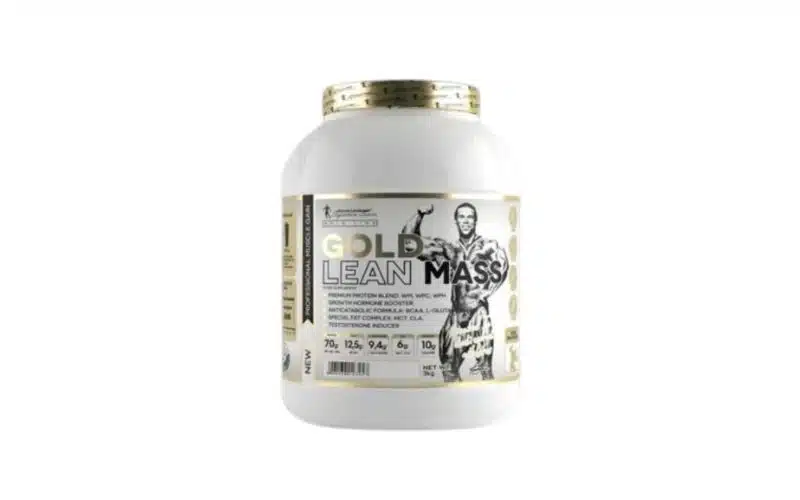
Homemade Mass Gainer vs Store-Bought: Which Is Better?
This is a hotly debated topic in the fitness community. Both options have their pros and cons depending on your individual needs, preferences, and resources.
Let’s break down both sides.
Benefits of Homemade Mass Gainers
1. Full Control Over Ingredients
When you make your own mass gainer, you choose exactly what goes into it. Whether it’s rolled oats, bananas, peanut butter, milk, or whey protein you can customize based on your dietary needs and taste preferences.
2. No Hidden Sugars or Additives
Many store-bought gainers contain high amounts of sugar, artificial flavors, preservatives, or cheap fillers. With a homemade version, you can avoid unhealthy ingredients and focus on whole-food nutrition.
3. Cost-Effective
Buying raw ingredients in bulk and mixing them at home can be significantly cheaper in the long run compared to buying commercial products.
4. Digestive Comfort
Some individuals experience bloating or digestive discomfort with processed supplements. Homemade gainers made with real food are usually easier on the stomach.
5. Better Nutrient Absorption
Whole foods are often better absorbed by the body due to the presence of natural enzymes, fiber, and co-factors.
Downsides of Homemade Mass Gainers
- Time-Consuming: Preparation takes time and effort, which can be inconvenient for those with busy schedules.
- Limited Shelf Life: Homemade gainers don’t contain preservatives, so they need to be consumed quickly or stored properly.
- Inconsistent Nutrient Ratios: Without proper measurement, it’s easy to under- or over-estimate calorie and protein content.
Advantages of Store-Bought Mass Gainers

1. Convenience
Just scoop, shake, and drink. Store-bought mass gainers are ready to use, making them ideal for people with tight schedules.
2. Accurate Labeling
Most reputable brands clearly list nutritional information, helping users track their macronutrient intake easily.
3. Higher Caloric Density
Many commercial gainers offer 600–1200+ calories per serving, making it easier for some users to reach daily goals without large volumes of food.
4. Additional Nutrients
Some store-bought gainers come with added creatine, digestive enzymes, BCAAs, or vitamins, enhancing their value.
Disadvantages of Store-Bought Mass Gainers
- High Sugar Content: Some products rely on cheap sugars to boost calorie count, which can lead to fat gain rather than lean muscle.
- Expensive Over Time: Depending on the brand and serving size, commercial gainers can be a costly addition to your routine.
- Questionable Ingredients: Not all brands are transparent. Some may include low-quality protein or filler carbs.
Nutritional Comparison
Let’s take a quick look at the nutritional aspects side by side:
| Feature | Homemade Mass Gainer | Store-Bought Mass Gainer |
| Ingredient Control | High | Low to Moderate |
| Cost Efficiency | High (cheaper long-term) | Moderate to Low |
| Convenience | Low | High |
| Nutritional Quality | Depends on ingredients used | Varies by brand |
| Digestibility | High (when made with whole foods) | Can vary |
Homemade Mass Gainer Recipe Example
Want to try a simple, powerful DIY shake? Here’s a quick recipe:
Ingredients:
- 1 banana
- 1 cup whole milk (or almond milk)
- 2 tbsp peanut butter
- 1 scoop whey protein
- ½ cup oats
- 1 tbsp honey
Approximate Nutritional Value:
- Calories: ~700–800 kcal
- Protein: 30–35g
- Carbs: 80–90g
- Fats: 25g
Blend everything together and enjoy post-workout or as a meal replacement!
When to Choose Homemade Over Store-Bought

You should consider homemade mass gainer vs store-bought which is better based on your lifestyle, dietary restrictions, and goals.
Choose homemade if:
- You want full ingredient transparency
- You’re on a budget
- You prefer clean, whole-food nutrition
Choose store-bought if:
- You need quick and easy calorie intake
- You have trouble preparing meals
- You’re okay with spending a bit more for convenience
Expert Insight: What Do Nutritionists Say?
According to certified sports nutritionists, whole foods should always form the base of your diet. Supplements can supplement, but not replace, proper eating. If you can prepare your own gainer with clean ingredients and proper macro ratios, it’s often the healthier and more sustainable choice.
However, for athletes who burn 3,000–4,000+ calories a day, a hybrid approach can be practical—using both homemade and store-bought solutions to meet daily needs.
FAQs
Q1: Is a homemade mass gainer safe for daily use?
Yes, when made with balanced, nutritious ingredients and consumed as part of a complete diet.
Q2: Can store-bought mass gainers make you fat?
Yes, if consumed in excess or combined with a sedentary lifestyle, the high sugar and calorie content can lead to fat gain.
Q3: How often should I take a mass gainer?
1–2 servings per day is typical, but it depends on your goals, activity level, and total daily calorie needs.
Q4: Can I combine homemade and store-bought mass gainers?
Absolutely! Many athletes use a store-bought gainer when short on time and a homemade version when they can prep.
Q5: Which option is better for long-term health?
In most cases, homemade mass gainers offer better long-term benefits due to whole-food ingredients and minimal processing.
Conclusion:
So, homemade mass gainer vs store-bought – which is better? The answer largely depends on your personal goals, budget, and lifestyle. Homemade gainers offer better nutrition and cost-effectiveness, while store-bought versions win in convenience and consistency.
Ultimately, both can play a role in a smart bulking strategy when used properly.
Need help choosing the right products or building your mass gainer stack?
Visit SportsOne Pakistan – your trusted source for high-quality supplements, expert guidance, and unbeatable value. Whether you’re going natural or going pro, we’ve got you covered!

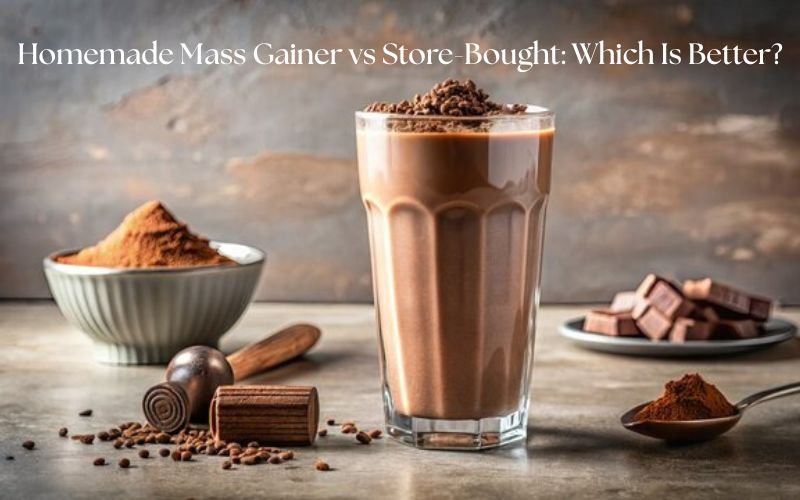


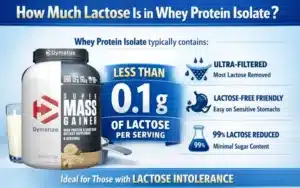

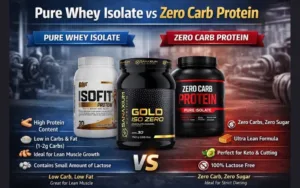
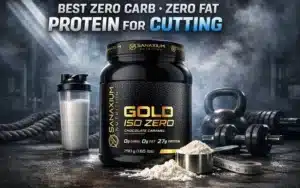
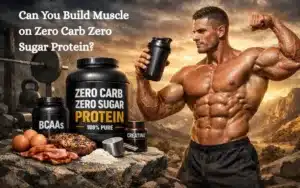
Add comment